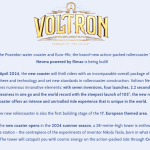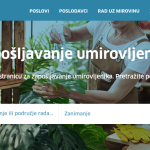Many church members freely interpret the Church doctrine.
According to a number of prominent sociologists of religion, Croatia is a country with relatively high levels of religiosity, its religious “scene” is very diverse, and one third of the faithful do not accept Church teachings, but behave as “their own” believers, reports tportal.hr on February 6, 2017.
Experts warn that the insight was provided by sociological research which seeks to consider various social aspects of religion, but intimate questions of faith remain largely elusive to science.
Based on the results of ten indicators, Croatia is in the fifth place according to religiosity levels in Europe, in a similar position to Italy and Slovakia, and behind Poland, Kosovo and Bosnia and Herzegovina. However, the level of religiosity varies depending on individual indicators, says Siniša Zrinščak, sociologist of religion from the Faculty of Law in Zagreb.
According to data from the European Values Survey in 2008, religiosity in Croatia is characterized by 84 percent of denominational and 79 percent of religious self-identification of citizens, as well as the fact that 87 percent of people believe in the existence of God. Also, 26 percent of believers said they participated in religious services weekly, while 16 percent did it month.
Croatia has a combination of high institutional religiosity, especially in terms of belonging to religious communities, and what is called individualized religiosity, since at least one-third of people who declare themselves to be religious are in fact distanced from the Church and denominational religiosity, says Zrinščak. They combine religious teachings themselves and decide what to take from them.
Although the Church continues to represent the widest identification frame in the society, according to some studies people are very critical towards its political engagement, but allow greater space to the Church with regards to social and ethical issues. As many as 80 percent of respondents are opposed to the Church interfering in political elections, says Zrinščak.
Sociologist of religion at the Institute for Social Research Dinka Marinović Jerolimov says that the religious “scene” in Croatia is very diverse, as evidenced by the fact that more than 50 religious communities are registered. Although Catholic Church is the dominant, very visible are Orthodox, Muslim and Jewish communities, as well as numerous other communities such as Protestant and others. All these communities have felt positive effects of the changes in society which started in the 1990s. These changes were one of the main societal factors which have increased expression of particular religious affiliation and religiosity, together with difficult times of war when the national homogenization was often tied to the religious homogenization, as well as the economic crisis which marked the post-war times, explains Jerolimov.
Traditional church institutional religiosity is a strong cultural-identity framework of most of the population in Croatia, but after a significant increase it has now entered the phase of stability, says Jerolimov. However, it should be noted that the religiosity is an individual phenomenon and that it certainly cannot be unambiguously interpreted just in the context of society and societal changes, since it is not homogeneous. There are different types of believers – from those who adapt to what their Church prescribes to those who develop the so-called individual type of religiosity. In Croatia, there is a very large number of those who “belong” to the Catholic Church due to baptism, but there is a very small number of those who go to church every Sunday.
Sociologist from Rijeka Željko Boneta recently published the results of his research about religiosity of university students, conducted in March 2015 among 635 students of the University of Rijeka. Based on these results, he says that the pendulum of church religiosity is currently returning to a lower level, after its extraordinary rise in the 1990s, when the religiosity of students was equal to the religiosity of adults.
Although the belief in the existence of God is the most widely accepted of the four religious truths which were offered to respondents (53.7 percent versus 77.2 percent in 1999), almost half of the sample doubted whether God exists or said that God does not exist. That shows that believing in God is not a universal belief, at least when it comes to university students. When it comes to religious participation in masses, the largest group are holiday practitioners (42.5 percent), followed by abstainers (34.7 percent), while there are very few regular practitioners. Students from Rijeka are according to all indicators of religiosity less religious than the average young people, who are again less religious than the general population.
The research also shows that there are substantial regional differences in religiosity. Religion is the least prevalent in the most developed parts of Croatia, in Istria, Rijeka area and Zagreb region, while it is most prevalent in Eastern Slavonia.
Most parents of today’s high school students were baptized as adults after 1990. As new members of the Catholic Church, they did everything for their children to have a “document”, a religious birth certificate, in order not to have “denominational problems” later during the life, in marriage, being godfathers, at funerals, etc., and also because they did not want to be stigmatized as communists, atheists and Yugo-nostalgic. Institutional religiousness of young people is equal to that of their parents, because the young people were not able to choose.
Religious communities always take part in the so-called “cultural wars” about certain issues,, from religious education in public schools, to abortion, homosexuality, marriage, contraception and divorce. However, believers often have their own defined views about these issues which often are not in line with the views of religious communities to which they belong.







